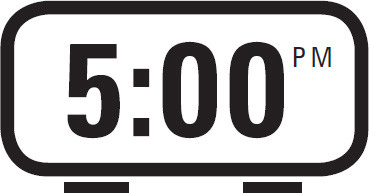

It’s five o’clock somewhere, and that somewhere is here! But short of becoming a professional boxer or a depth-record skin diver, drinking too much alcohol over time is about the worst thing you can do to your brain. With heavy alcohol use, short-term memory, long-term memory, and motor skills all decline. Even after years of abstinence, alcoholics fail to recover long-term memory. But what about those moderate drinkers we’ve all heard about? Does one drink a day—preferably red wine—really increase cognitive performance? Does your brain appreciate a gentle ethanol wash?
Let’s go back to the source. You don’t get more authoritative than a 1988 study published in the New England Journal of Medicine that explored coronary disease and stroke in a population of 87,526 female nurses. The article’s authors write, “Among middle-aged women, moderate alcohol consumption decreases the risks of coronary heart disease and ischemic stroke.” It’s the study that launched a thousand ships! Drinking is good for you!
But beyond the beneficial effect of three to seven drinks per week on the circulatory system, things get just a bit fuzzier. Let’s look at these same nurses, this time in 1999, when 12,480 of them were between ages seventy and eighty-one. Again, “moderate drinkers had better mean cognitive scores than nondrinkers.” When they tested nurses two years later, these older moderate drinkers also had a lower chance of cognitive decline.
Now, the reason for better brains in moderate drinkers is a little tricky to pin down. First, there’s the cardiovascular benefit: a bit like aspirin, a little bit of alcohol administered in small quantities over time may thin the blood in a way that helps it pass more easily through the cardiopulmonary system, bringing a bit more oxygen and nutrients to your brain.
Then there’s the idea that moderate drinking may do good things for personality and sociability. It’s a fact: moderate drinkers are more likely to be social than their heavy-drinking or teetotaling peers. And just like boxing and deep-sea diving will squish brain cells like grapes in a wine barrel, being social is one of the most powerful ways to make brain cells happy. Something similar is true of mood. Since humankind’s first experience with fermented juices, we’ve known that moderate alcohol consumption makes people just a bit euphoric. In modern society, moderate drinking has been shown to reduce stress, cut the chance of clinical depression, and create “overall affective expression, happiness, euphoria, conviviality and pleasant and carefree feelings,” according to a review in the journal Drug and Alcohol Dependence. In short, moderate alcohol consumption makes you a better person. And there are tons of brain benefits associated with a slightly better mood, from physiological protection against chronic stress to, again, a higher chance of sallying forth more frequently into the social world.
Can you get the cognitive benefits of moderate alcohol consumption without the drinking? The answer is maybe or even probably. You could be social without alcohol, and you could be in a good mood without alcohol. But when you look across a population, it’s the people who drink a little—but not a lot!—that sink naturally into this rhythm of good vibes.
Brain Hack
In this headline that drinking is good, keep the word moderate firmly in mind. Beyond one drink per day, the health benefits of alcohol take a plunge off a steep cliff. If you fear that cliff, finding a way to relax, enjoy, and be social without the drink may be a much better choice.